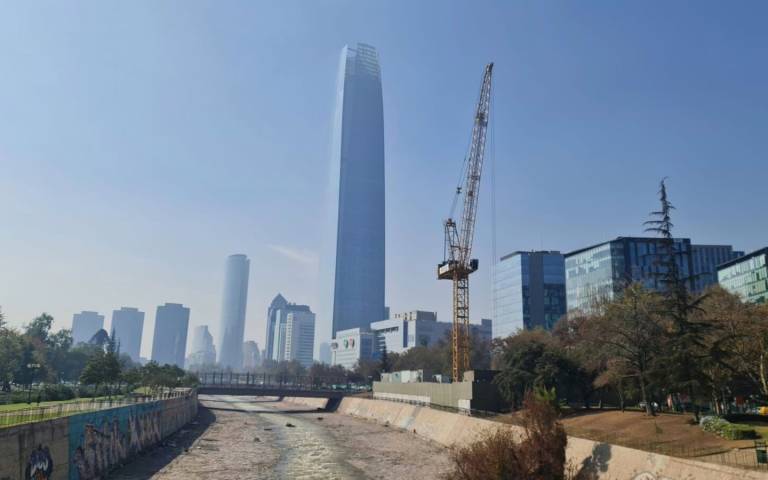 Research
Research

Subject
The Voices of the River. Fluvial Imaginaries of the Mapocho River as Elements of Urban Identity
First and second supervisors
Abstract
The Mapocho river has played a vital role in the history and identity of Santiago, Chile, serving as a source of clear water and inspiration for its people. Yet, due to modernisation processes and uneven development, the river has become marginalised and invisible, and has been associated with waste and criminality. The Mapocho is a seasonal river, that is, it is a trickle of water for a good part of the year. However, since the foundation of the city in 1541, the river has given rise to more than 25 major floodings affecting the urban fabric and life of Santiago. This changing and indomitable nature of the Mapocho has conditioned the relationship between the river and its citizens since the origins of the city. Originally, the Mapocho was conceived as the northern boundary of the city. It divided the city in two: the affluent and dominant, and the poor and indigenous. Furthermore, until 2010, the river received wastewater from the city. As a result, the river has been historically associated with waste, crime, and poverty.
The concept of fluvial imaginaries can offer a range of perspectives on how we read, interpret, and imagine critical dimensions of urban riverscapes. By examining multiple imaginaries related to the Mapocho river, this paper aims to reveal how Santiago's people shape and are shaped by their urban landscape. These imaginaries refer to the mediation and interpretation of a riverscape by cultural texts, including visual, literary, and oral – as well as hegemonic and subaltern – forms. By focusing on rivers, this research highlights the historical and cultural significance of these waterways, while also acknowledging their marginalisation and neglect in which they are in many cities, especially in the Global South.
The multiple imaginaries related to the Mapocho river offer a useful insight into how the city has been physically and imaginarily created by its citizens. Through an examination of multiple fluvial imaginaries related to the Mapocho river in Santiago, this study reveals how fluvial imaginaries can offer a range of perspectives on critical dimensions of urban riverscapes and their relationship with riparian societies.
Biography
Isabelle Donetch is currently a PhD student in Architectural and Urban History and Theory at UCL. She studied architecture at the Universidad de Chile (2016) and graduated from UCL in 2020, where she pursued an MSc in Sustainable Heritage. In addition, she holds a diploma in Cultural Heritage awarded from the Universidad Católica in Chile. Her academic interests focus on “history from below” where she explores power struggles over hegemonic narratives and memory in the construction of heritage and identity. Before starting her PhD, Isabelle worked as an architect, collaborating with architectural practices in Santiago as well as developing several research projects, published articles and participating in different international conferences.
Publications
Donetch, I. Forthcoming. Representations and resignification of a public monument. The social struggles over monuments after the Social Outbreak in Santiago de Chile. In: Smith, L., Campbell, G., Whitehead, C. & Bozoğlu, G. (eds) Routledge International Handbook of Heritage and Politics. London: Routledge
Donetch, I. 2021. Comunidades y Sitios de Memoria: Metodología para la puesta en valor de los Sitios de Memoria. Revista de Urbanismo, 45, 163–181. https://doi.org/10.5354/0717-5051.2021.61192
Funding
National Agency for Research and Development (ANID) Graduate Fellowship (Chile)
The Michael James Scholarship, Amar-Franses and Foster-Jenkins Trust (UK)
Image: Photo by Isabelle Donetch
 Close
Close

